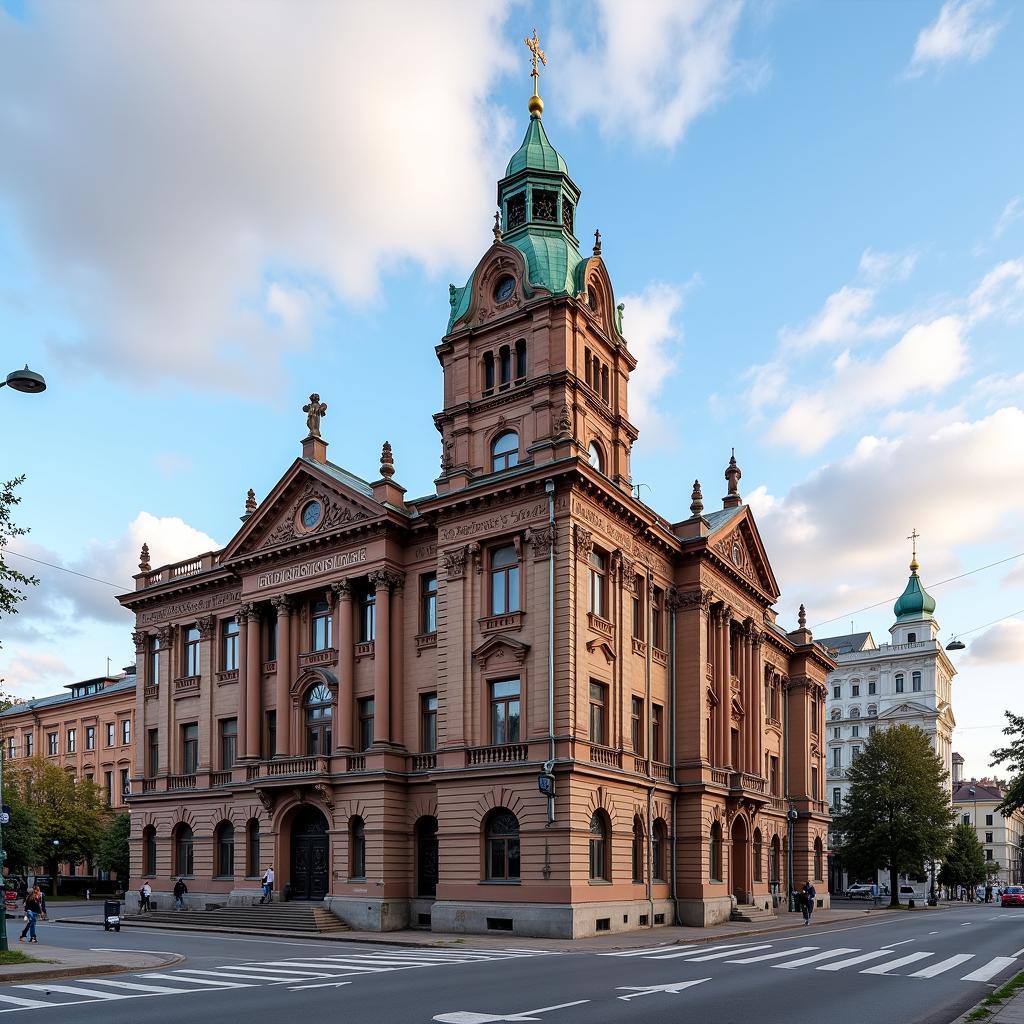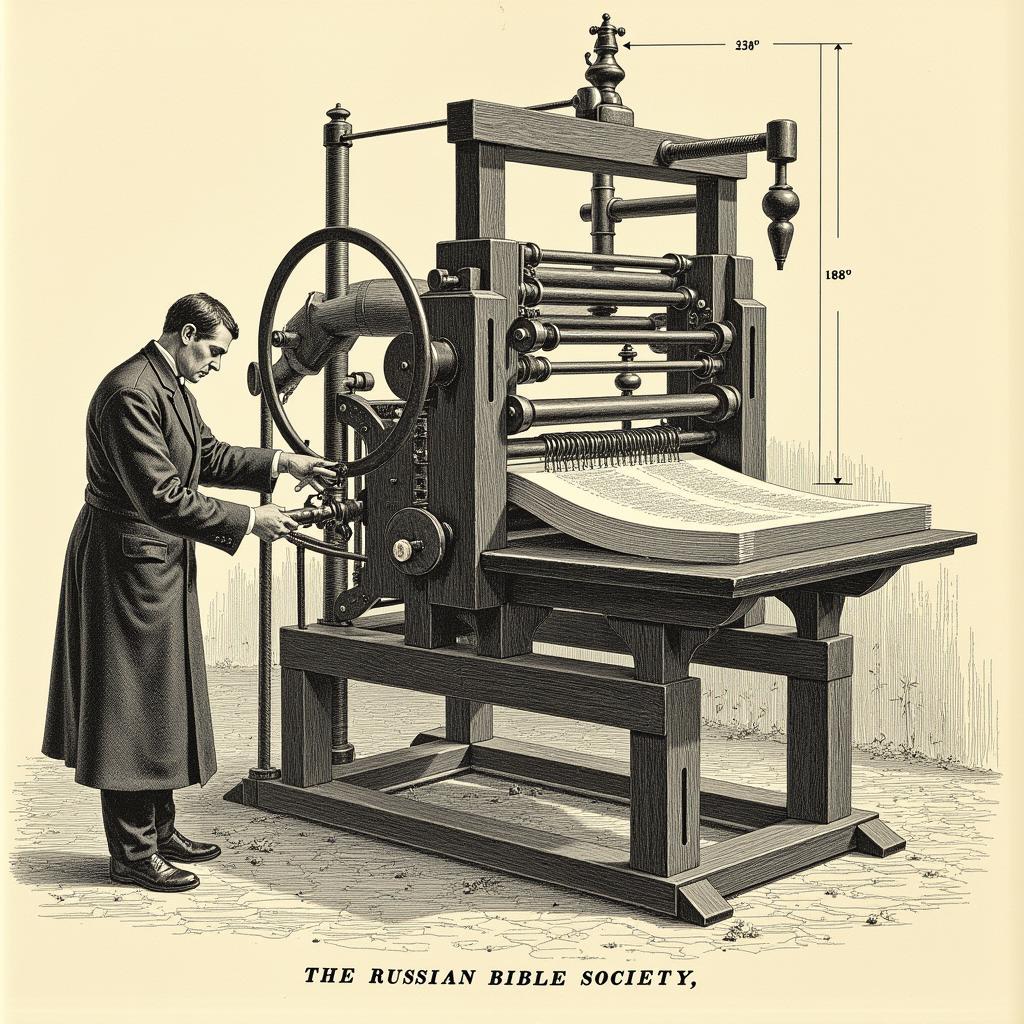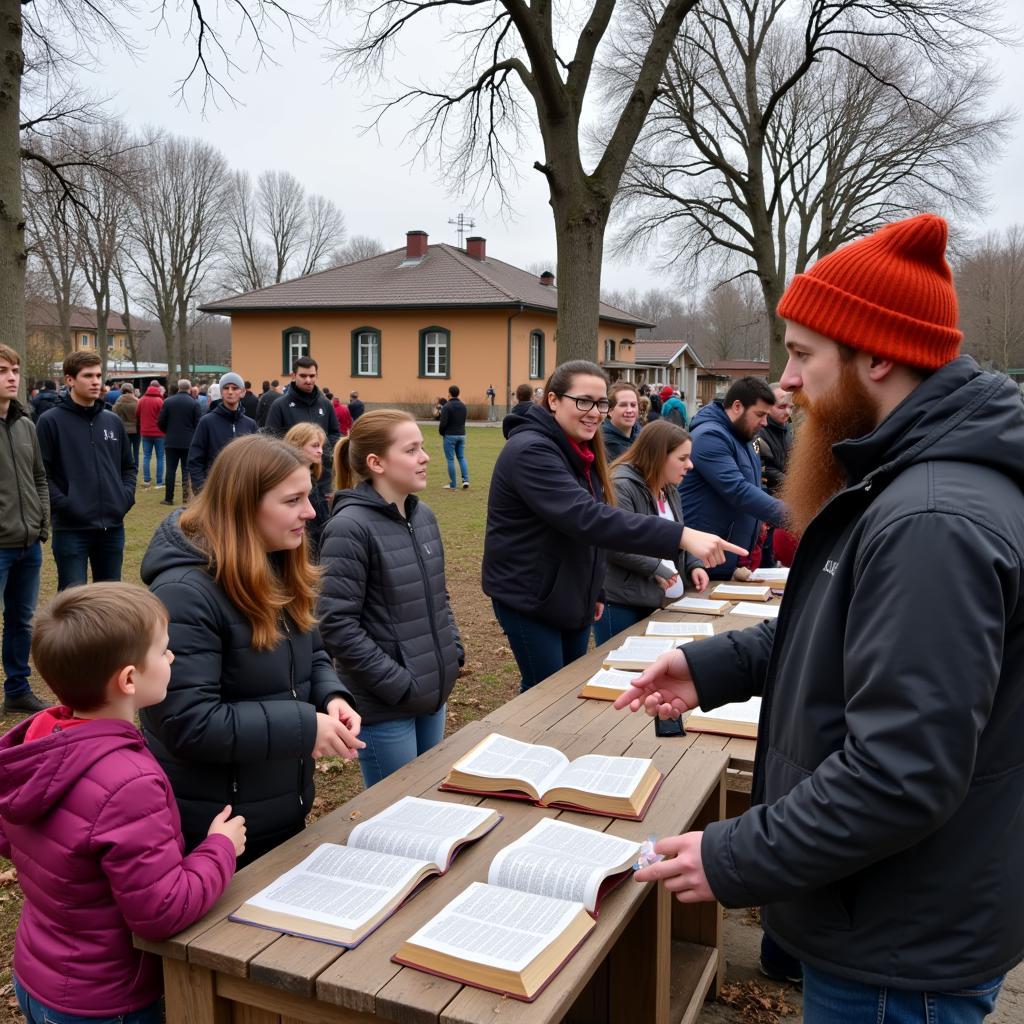The Russian Bible Society has a long and complex history, marked by periods of both flourishing activity and suppression. Understanding the journey of this organization provides valuable insights into the intersection of faith, politics, and social change in Russia.
 Historic Building of the Russian Bible Society in St. Petersburg
Historic Building of the Russian Bible Society in St. Petersburg
A Legacy of Spreading the Word
Founded in 1812, the Russian Bible Society emerged during a time of religious revival and societal transformation in Russia. Tsar Alexander I, influenced by the global spread of Bible societies, granted his patronage to the organization. This royal support enabled the Russian Bible Society to thrive, rapidly expanding its reach across the vast Russian Empire.
The Society’s primary mission was to make the Bible accessible to all, regardless of language or social standing. To achieve this goal, it embarked on an ambitious translation and printing program. Bibles were translated into numerous languages spoken within the empire, including Russian, Ukrainian, Tatar, and Finnish, among others.
 Antique Printing Press of the Russian Bible Society
Antique Printing Press of the Russian Bible Society
This dedication to linguistic diversity and inclusion marked a significant step towards promoting literacy and religious understanding across different communities. The society’s efforts fostered a sense of shared faith and cultural exchange within the diverse tapestry of the Russian Empire.
Navigating Challenges and Suppression
Despite its noble goals and initial success, the Russian Bible Society faced growing opposition from conservative elements within the Russian Orthodox Church. They viewed the widespread distribution of the Bible, particularly in vernacular languages, as a threat to their authority and traditional religious practices.
These tensions came to a head during the reign of Tsar Nicholas I, who, unlike his predecessor, held a more conservative view of religion and autocratic rule. In 1826, the Russian Bible Society’s activities were officially suspended, marking a period of silence and suppression for the organization.
Revival and Transformation in the Modern Era
The Russian Bible Society experienced a resurgence in the late 19th century, albeit with limitations. It was only after the fall of the Soviet Union in 1991 that the organization could fully resume its mission without restrictions.
Since its revival, the Russian Bible Society has adapted to the changing social and religious landscape of modern Russia. It has embraced new technologies and methods to disseminate the Bible and promote its message.
 Modern Day Community Outreach Program by the Russian Bible Society
Modern Day Community Outreach Program by the Russian Bible Society
Conclusion
The story of the Russian Bible Society is one of resilience, adaptation, and unwavering commitment to spreading the message of the Bible. From its imperial beginnings to its suppression and eventual revival, the organization’s journey reflects the intricate interplay of faith, politics, and social change within Russia.
Today, the Russian Bible Society continues to serve as a beacon of hope and a testament to the enduring power of faith, even in the face of adversity.
If you’d like to learn more about the intersection of faith and culture, you can read about the american bible society nyc.